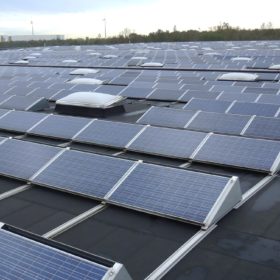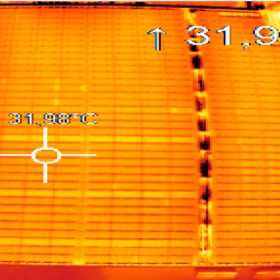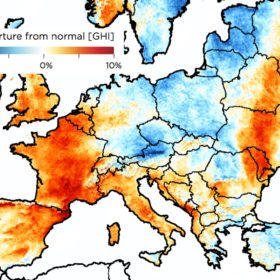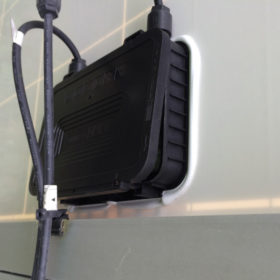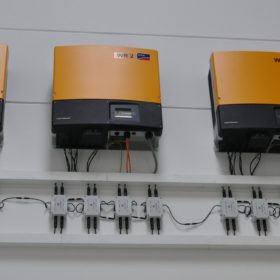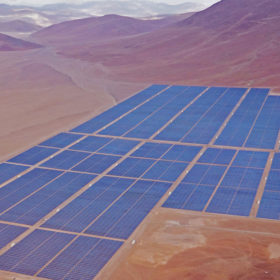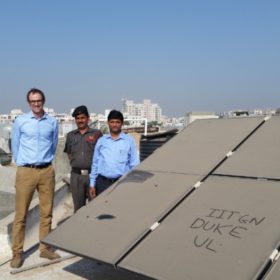DNV GL: AI will make renewables more efficient
A paper published by consultancy DNV GL forecasts major growth in the use of artificial intelligence (AI) applications within renewable energy, and outlines the risks and opportunities of such technologies.
What happens when… modules get dirty?
Troubleshooting series: Steadily declining system yield over the years is to be expected due to module degradation in photovoltaic systems. But in the following case, the yield abruptly dropped – and it happened after several years of operation. In this series based on real cases, pv magazine aims to make assessment of troubleshooting efforts more concrete and stimulate a discussion about troubleshooting efficiency today.
What happens when… several module strings fail?
Series troubleshooting: If several module strings fail completely, the result is usually high yield losses. But to identify the strings and correct the failure can sometimes be a challenge. In this series with realistic cases, pv magazine aims to make the estimation of troubleshooting efforts more concrete and to stimulate a discussion on today’s troubleshooting efficiency.
Weather and climate data: Answers to questions from the pv magazine webinar
Assessment of weather data and forecasting are vital in reducing risks and, therefore, financing costs and losses during the operation of solar plants. Following a recent pv magazine webinar, Finnish environmental firm Vaisala has prepared detailed answers to the main questions posed by participants.
What happens when… bypass diodes fail?
Series troubleshooting: Bypass diodes fail regularly, either because they do not have a high enough power rating or because they are overloaded due to nearby lightning strikes. With the following hypothetical, but realistic case pv magazine starts a series which aims to make the estimation of troubleshooting efforts more concrete and to stimulate a discussion on todays troubleshooting efficiency.
Webinar: A nose for quality
Module monitoring: PV is a stable technology and comparatively coarse methods of performance monitoring are considered sufficient to assure optimal performance. However, approximately 8% of all module defects are not easily detectable.
SMA expands O&M business in South America
SMA has announced the completion of contracts for the operation and maintenance of two solar power plants in Chile. The plants are owned by Atlas Renewable Energies, and have a combined capacity of 180 MW. The plants include both SMA inverters and those of other manufacturers.
Air pollution contributing to 25% solar panel output reduction, study finds
Accumulation of airborne particles on solar panels may cut energy output by more than 25% in some parts of the world, shows a new study carried out by researchers of Duke University, in cooperation with colleagues at the Indian Institute of Technology-Gandhinagar and the University of Wisconsin at Madison.
O&M business must get to scale
At the first day of the conference PV Asset Management and O&M Europe 2017, which winds up today in Hamburg, almost all the participants agreed on the fact that the business is becoming more and more complex, and that getting to scale may provide a path through a period of further consolidation.
US investors, led by Tesla/SolarCity, dominate list of non-Chinese solar PV asset owners
Report by GTM Research and Solichamba finds 11 investors that each own more than 1 GW of PV assets, with eight of those 11 hailing from the U.S.

